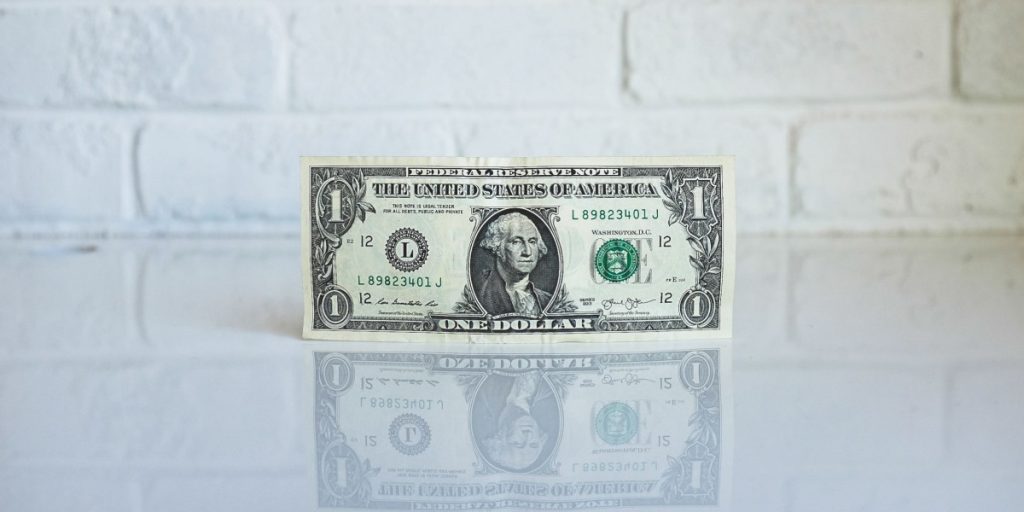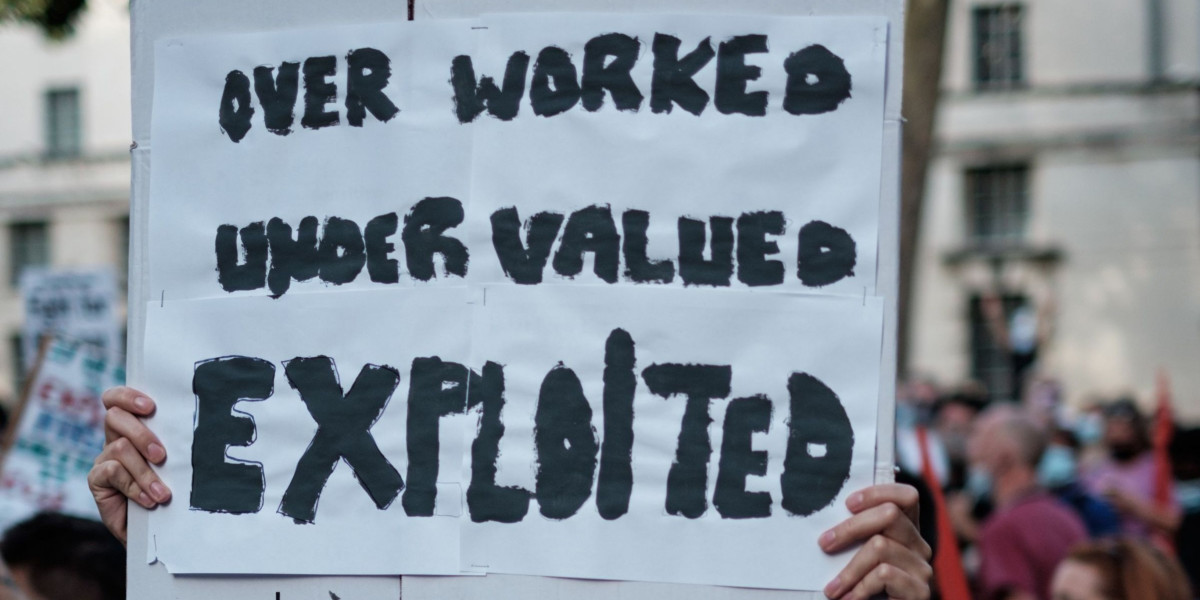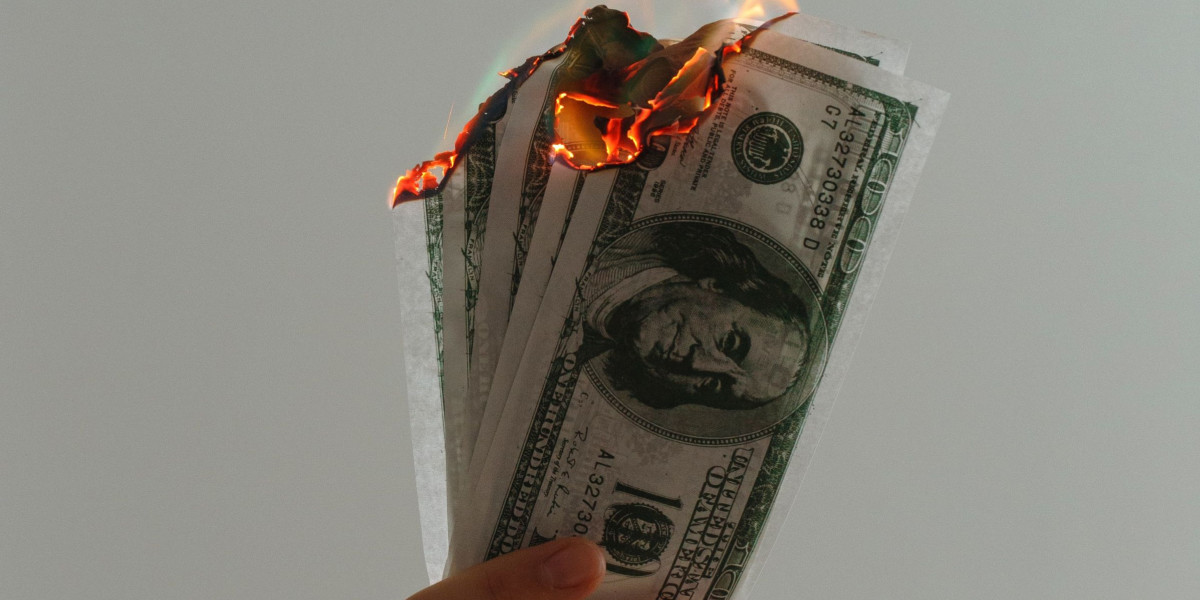Why Minimum Wage Laws Don’t Work

Hello everyone, and welcome to another episode of Bigger Hearts, Deeper Minds. Today’s topic is a hotly contested topic amongst many political circles, and it is the idea of minimum wage. This includes minimum wage laws and how they affect workers, societies, communities, prices, markets, and everything. I feel like this debate has been around for probably decades, if not centuries. Certainly as long as I’ve been paying attention to politics and considered myself a conservative before turning libertarian.
From what I can basically gather, people want people’s lives to go a certain way, and I’m not any different (meaning, I care). You want to be able to live a good life. You want to be able to live a reasonable, happy, healthy life. Who doesn’t want that? That’s part of the human condition.
So there’s a couple of reasons why minimum wage laws don’t work, and oftentimes they actually create more of a problem rather than simply being ineffective. So the idea behind the minimum wage is every adult should be able to earn an amount of money every month. That enables them to pay their bills and basically be able to get by. There’s absolutely nothing wrong with that intent, like I said before, but we run into a couple of issues when we actually reach the problem.
Problems When Implementing Minimum Wage
When we actually reach the implementation of minimum wage, we start to see problems come out that people didn’t intend to be part of the outcome. So number one is, a minimum wage law basically says you can’t pay someone less than this amount for this type of work.
Minimum Wage Prices People Out Of The Market
The first reason why minimum wage laws don’t work is they price certain people out of the market. People getting their first or second job, like teenagers, are some of the first people to be priced out of the working market. Businesses aren’t going to hire people with minimal skills if it’s too expensive to do so. They’re going to hire workers with more skills and greater experience. Businesses want to get the most value for their dollars, as they should (and people should, too).
Greater Compensation Is Associated With Different Roles For A Reason
A manager gets paid more than a team member because the manager has more valuable work to do. They’re being more productive with their work. It all comes down to the basic idea of productivity and also risk and capital. But on a very basic level, productivity. So, what is your output? What is the nature of your work? What are you putting in and what are you putting out to be able to justify a $15 or $20 per hour wage?
This is the first reason why minimum wage laws don’t work. There are people who don’t have real world job experience, which most often is people getting their first job, or teenagers. If, all of a sudden, you say you can’t pay them less than $15 an hour for this particular work, you’re basically saying, “Okay, I’m not going to hire that type of person because they don’t have the skill that I need. I’m not going to hire a teenager when I could hire someone who had another job before, and they can transfer that skill to this new job.”
Transferable Skills
That in and of itself is a term as well. It’s called a transferable skill. Oftentimes you can learn something in one particular job and bring it over to another job because the markets are similar or the work is similar.
Inexperienced Workers Are Hurt Most By Minimum Wage
So, people with what they call “low skills” and less experience are actually hurt by minimum wage laws. If you’re saying I have to pay you $15 an hour to do this work, companies aren’t going to do that. They’re going to hire someone who’s going to get them the most productivity for that minimum wage. And so if it becomes $15 an hour, they’re not gonna hire someone who hasn’t gone through the experience of anything related to that before. Companies are going to look for the most valuable worker they can find. They’re going to look for someone who either already knows how to do the job or someone who doesn’t need much training.

Minimum Wage Artificially Devalues Work
The second reason why minimum wage laws don’t work is they force the devaluation of other types of work and jobs in particular markets. If you’re saying someone working in a fast food or retail environment has to be paid $15 an hour, what that’s really doing is forcing up the costs of other jobs and other roles. So with someone who might be making $21 an hour, that may artificially force them to seek out different employment.
If people at one particular level are making a certain threshold because the minimum wage law was passed, it’s going to force other people to say, “Hey, I want the money that I earn to have the same type of value in the marketplace as it did before.”
If the person working the now minimum wage job was making something like $10 or $11 an hour, but now they’re making $15 an hour for the same work… The person who’s making $20 or $21 an hour, they want the value of their money and their work to be upheld. So you you basically just robbed them of some of the work that they did to get to that point. People are going to say, “Alright. If that person is making this much more money, I want to make that much more money too.” You don’t want to lose the value of what you’re doing because someone else’s wage was artificially raised.
Analogy
I hope this is a good analogy… If there is a car, it costs a particular amount and the car hasn’t changed. But all of a sudden, that car is made more expensive. It actually devalues cars that provide more functions, more value, and a nicer appearance.
So it’s kind of like if a Honda was all of a sudden significantly more expensive than it normally is. This devalues a more valuable car like an antique, or a Bugatti, or a Lambo, or a Tesla. So it’s basically saying, “Well, Lamborghini or Tesla, they’re just going to raise their prices because their cars haven’t gotten less valuable.” But if you keep the Honda the same, it’s going to be more expensive. It’s just going to artificially change other things in the market as well.
Minimum Wage Laws Hurt Most The People They’re Intended To Help Most
Here’s another thing that happens with minimum wage laws. The people who it’s intended to benefit it actually hurts the most. If you pass the law and it says you can’t pay these people less than this amount, it has to be this threshold at $15 an hour. What actually happens to a business is the following…
Let’s say the business is pulling in the same amount of revenue, but now they have to pay their employees a certain amount more. What they’re going to do is have to let more employees go. Minimum wage laws actually don’t increase employment. They actually decrease employment.
If you’re normally paying someone about $12 per hour and now have to pay them $15 per hour, that is X dollars more that you are paying the same person for the same the same labor, and the same value of that labor. So now what happens is the expenses on your balance sheet just rose, but your profit didn’t. So you have to find a way to keep the same amount of profit for your business–while still adhering to the laws. So basically what that means is you have to cut other areas of your expenses, and labor is a very large expense.
And so this happened on Bernie Sanders’ campaign team. People were fighting for him to be paying his campaign staff a particular wage. That did happen and their wages went up. But in order to justify that greater wage per individual, he had to reduce staff hours, and that’s what happens with any other business.
So, like I said, if your expenses rise but the work hasn’t changed, you’re gonna have to let other people go. It actually puts more people out of work than it takes into work. That’s a plain and simple reason why minimum wage laws don’t work.
Human Beings Respond To Incentives
Something that we should talk about here, too, because it’s very relevant, is people respond to incentives. People respond to what type of value they’re going to get by pursuing a particular action. In short, there’s a reason that a shelf stocker at a retail store gets paid less than a doctor in a hospital.

Doctors Bring More Market Value Than Shelf Stockers
The doctor had to go through–quite literally–decades of school. They had to go through hundreds of thousands of dollars of education. They had to go through extremely rigorous licensing and professional fees and tests. They had to perform a number of things to show that they are ready. They had to study and study and study and write and write and write and test and test and test.
All these things that a doctor has to go through are demanding, and it’s similar for a lawyer as well. Society assigns a specific type of value to these types of work. So a doctor or a lawyer is bringing a certain type of value to the market that a shelf stocker cannot and doesn’t. You can’t blame this for being a reason why minimum wage laws don’t work.
People Have Freedom Of Choice
This is not knocking people who didn’t go to school for that, or can’t go to school for that. That’s not what I’m saying. I can already hear the liberals especially saying, “Oh, you don’t want people to be able to make a living wage. You don’t want people to be able to live.”
No, I never said that. I specifically said at the beginning I will never knock the fact that someone wants to make it possible for themselves to live a happy, well rounded, financially possible life.
You have to understand what the market is willing to trade a certain amount of money for. Being a shelf stocker is very easy to learn. You can basically learn that skill overnight, so you’re gonna get paid accordingly.
With a doctor or a lawyer, like I said, they have to go through years of school. They have to go through hundreds of thousands of dollars of education. They have to pass a lot of tests. They have to prove a lot of things; they have to demonstrate a lot of things.

Society Assigns More Value To Certain Types Of Work
So society says, “because you’ve done all this and you’re providing a particular type of service or value to the marketplace, we are going to pay you more for that.” By raising the minimum wage, you’re saying that the same type of work deserves more value when it may or may not. It has nothing to do with the person working the job or or the capacity of their skill. You’re really just saying this type of work shouldn’t be paid any less than “this.”
What people so often miss in this conversation is, if you want to achieve a particular thing, you have to enact a particular type of action. You have to pursue a particular type. Of course, you can’t sit around all day and expect to be fit. You have to exercise to be fit, and you have to exercise consistently.
You can’t buy a set of painting supplies and never paint and expect to be an incredible painter who sells millions of dollars worth of artwork. You have to do something with it. So that’s what people so often miss… you have to make a decision about what you’re gonna do with your life, your time, your money, and your resources.
Background Info
Here’s a little background on me, especially for those of you who are listening for the first time… People see doctors and lawyers and professionals and authors and podcasters and things like that. And they’re like, “Oh, well, they just have it great because they’ve always had it that great.” No, that is not true at all.
I started off doing all these same things that I have talked about. One of my first jobs ever was an ice cream scooper. And that’s even extra weird for me to think about because I’m a vegan now. So, life changes you. You make decisions and you bring your life in a particular direction that will continually benefit yourself and the outcome of the decisions that you’ve made.
Some Of My Work History
I’ve been a shelf stocker. I’ve been an ice cream scooper. I have worked in pet stores. I’ve done retail. I have done boring, basically like data entry type jobs online. I’ve worked in a library. I have worked in a school. I’ve done a lot of different things, and each step you take brings you one or two steps closer to where you want to eventually be.
So it’s all about incentive, and and there’s nothing wrong with wanting to help people and seeing the difficulties that people go through. But at the same time, it doesn’t negate the fact that you have to make smart decisions, even if you haven’t grown up in a family that was well off, and I totally get that.
Another thing, too, is if you grew up in America, you have a lot more advantages than other people often do. It’s not to say that people not in America don’t work hard because they absolutely do. I think Africa has one of the highest rates of high school and college graduation rates. There are many families in Africa who grow up out of poverty, and they know that, “Oh, I have a chance to receive education. This is an incredible opportunity for me to make a life for myself and get out there.” And that’s just one example.
Personal Story
Someone who I know really well was born into an immigrant family. Her parents were immigrants and she worked very hard at getting a college education and being a college graduate and working towards a better life. She’s very proud and she openly says this. These aren’t my words, they’re hers. She talks about how she is extremely proud to be an immigrant daughter, and she is extremely grateful and proud of the opportunity that she had to better her life because her parents made decisions to help her get closer to that.
That is my long-winded way of saying this stuff does count. You have to account for the individual and the choices that they are making. I’m not saying that we have to just poo-poo people who say, um, that they want people to have better lives. That’s not what I’m saying at all.
Most People Want Others To Succeed
Everyone wants people have better lives. At least anyone who’s compassionate wants people to have better lives, myself included. But we have to account for the economic realities resulting from the things that we ask for and wish for. Factors like these continue to show us why minimum wage laws don’t work.

Minimum Wage And Inflation Are Related
Let’s talk about inflation as well. Inflation is something that so often gets overlooked in the minimum wage conversations. I think something that it’s easy for people to miss is they see how much rent costs. Yes, rent can be very expensive and and very often is, especially in larger cities, like New York and San Francisco and Los Angeles and even Chicago.
To some extent, people don’t account for inflation (which is basically the government printing more money whenever they feel like it). And oh, my gosh, 2020. I don’t even want to talk about that. But the government has just been printing more and more money.
The Concept Of Scarcity
Every time you add more of the same thing to something else, it becomes less valuable. So if you have one golden ring, that golden ring is extremely valuable because you only have one of it. But if you have 10 or if you have 20 or if you have 1,000, the the value and the price of that starts to be watered down because you have so much of it.
There’s a reason that fine art has such a high price tag on it. And there’s so much attention on it because the original is so valuable. Otherwise, it’s a duplicate, so it’s the same thing with everything else. The more you flood something with anything, you’re gonna not have as much value assigned to it.
It’s the same with money. We used to have things like a bartering system. Our money used to be backed by gold, so it used to actually be worth something because gold is a hard asset and you can’t replace it with anything else. You can’t produce more of it. There’s a limited quantity of it.
Ubiquity Drives Prices Down; Rarity Drives Them Up
So basically what happens is people look at these huge rent prices and the big prices of everything else. And it turns into a conversation of, “Why do I have to pay $1000 or $1500 for rent? That’s a ridiculous cost.” Well, we forget the following. In order to get the same amount of monetary value from something, if there’s tons and tons of inflation, you have to charge more.
When you could originally charge, say, 500, you have to charge 1500 it’s because there’s so much more of everything in the financial system. So you have to charge more, and you have to pay more to get the same type of value from something that wasn’t as bloated and as inflated before. This leads me to another point that I should have included earlier.

Minimum Wage Eats Profit And Artificially Raises Prices
Another reason why minimum wage laws don’t work is this. If there’s a service that someone would normally be selling for $20 and they’re paying someone $8 to perform the work, a fraction of that is their profit.
So let’s say it’s $4 and there are other things that go into that. That might not be a realistic example, but you get the point. There’s a certain amount you charge a customer, there’s certain certain amount you’re paying expenses, and there’s a certain amount that you get in profit. That’s how every business works on a very fundamental level.
What It Looks Like In Real Life
So if someone comes along and says, “Hey, I need more than $8 or we’re going to mandate that you pay this person more than $8 to do the same kind of work,” What it comes down to is this. I can’t pay this person $8 anymore. I have to pay them $12. I’m going to raise the price of my service to $30 instead of $20.
The person is still getting paid a certain amount. You’re still charging a certain amount for the service, and you’re still making a certain amount of profit. But you had to raise all of that because of the stupid minimum wage law. That said, you can’t pay this person this amount anymore. You have to pay them more so it artificially jacks up the prices of everything.
New York’s Minimum Wage Laws
New York passed some $15 an hour minimum wage law and a lot of restaurants had to shut down and/or let go of workers because they couldn’t afford to keep the same amount of employees on at that same rate. Like I said, you have to you have to actually let go of people in order to justify the new mandated costs that you’re paying to your employees.
So it often has the opposite effect that people wanted it to have. And really, what people should be doing is thinking about this… “What am I going to do to make my life better? What am I going to do to find the skills I need to warrant a higher cost to warrant a higher value, a higher monetary value for the work that I’m doing?”
Personal Wage Stagnation Is Rare
It’s very, very rare to see that people say stay completely stagnant wage-wise across their entire lives. Most often the case is that there is a lot of upward mobility across the wage scale and that the older people get, typically, the more money that they earn. That that is in part because of raises, that could be because of promotions, that could be because of changing industries. It’s extremely rare to see people constantly backsliding.
You have to be pretty much holding the same job to see legitimate wage stagnation. Then, inflation slowly erodes it at that same money that you’re making. It’s rare to see people consistently backsliding throughout their entire lives. If anything, wages stay stagnant if people don’t pursue new, meaningful ends for themselves.
Most often it’s common to see people rising up through the wage scale. Income growth is a lot more common than people realize. Think about it like this. If you can make more money, if you want to, who wants to be making the same amount of money in 10 years that they’re making now? It’s no one. People always want to be making more money if they can, and so many people choose to, and I commend them for that.
Why Minimum Wage Laws Don’t Work: Wrapping Up
So that is why minimum wage laws don’t work. I will post a bunch of links and stuff in the description below. I hope you enjoy checking that out.
Show notes from original episode:
5 reasons raising the minimum wage is bad public policy: https://fee.org/articles/5-reasons-raising-the-minimum-wage-is-bad-public-policy/
The case for abolishing minimum wage laws: https://fee.org/articles/the-case-for-abolishing-minimum-wage-laws/
Minimum wage laws weaken economic recovery: https://www.cato.org/blog/minimum-wage-laws-will-weaken-recovery?queryID=a59b6605da76e15035584d85df0bd23c
The dream of $15 minimum wage gets a reality check: https://www.bloomberg.com/graphics/2019-minimum-wage-increase-inflation/
Minimum wage ignores economic reality: https://reason.com/2013/02/21/minimum-wage-and-economic-reality/
The costs of a $15 minimum wage: https://reason.com/2015/05/28/the-costs-of-a-15-minimum-wage/
Minimum wage hikes inflict maximum pain: https://reason.com/2018/01/16/minimum-wage-hikes-inflict-maximum-pain/
The unintended consequences of a $15 minimum wage: https://www.forbes.com/sites/jackkelly/2019/07/10/the-unintended-consequences-of-the-15-minimum-wage/?sh=7b99d219e4a7
Transferable skills:
https://www.livecareer.com/resources/resumes/basics/transferable-skills-set
https://www.forbes.com/sites/nextavenue/2018/02/09/the-7-transferable-skills-to-help-you-change-careers/?sh=48db81ea4c04
Why and how minimum wage backfires: (young workers in particular):
Why minimum wage hurts young workers: https://www.intellectualtakeout.org/article/why-minimum-wage-so-bad-young-workers/
More victims of the $15 minimum wage: https://www.intellectualtakeout.org/article/more-victims-15-minimum-wage/
Your first job: real costs of the minimum wage: https://www.intellectualtakeout.org/article/your-first-job-real-costs-minimum-wage/
Knowing their harm, politicians still push for minimum wages: https://www.intellectualtakeout.org/article/knowing-their-harm-politicians-still-push-minimum-wages/
Florida votes for job-killing $15 minimum wage: https://www.intellectualtakeout.org/florida-votes-for-job-killing–15-minimum-wage/
Bernie Sanders’ team reduces hours to increase wages:
https://www.newsweek.com/bernie-sanders-campaign-15-dollar-minimum-wage-staff-2020-controversy-1450267
https://www.forbes.com/sites/rohitarora/2019/07/24/bernie-sanders-learns-a-small-business-lesson/?sh=1ace0b223b2b
https://www.cato.org/publications/commentary/bernies-15-minimum-wage-would-make-america-less-hospitable-immigrants?queryID=a59b6605da76e15035584d85df0bd23c
Individuals respond to incentive / why different occupations pay differently:
https://thismatter.com/economics/wage-differentials.htm#:~:text=Some%20jobs%20pay%20more%20because%20they%20are%20less%20desirable.&text=For%20instance%2C%20construction%20pays%20more,desirability%20of%20the%20job%20itself.
https://bizfluent.com/info-8187925-do-earn-higher-wages-others.html
Why Do Some Occupations Pay More than Others? Social Closure and Earnings Inequality in the United States: https://www.jstor.org/stable/10.1086/344121?seq=1
11 causes of differences in wages: https://www.yourarticlelibrary.com/economics/wage-determination/top-11-causes-of-difference-in-wages-explained/47907
African students, graduation, and results:
526 Africa University graduates in 2019 class: https://www.umnews.org/en/news/526-africa-university-graduates-in-2019-class
https://qz.com/africa/1128778/africa-brain-drain-to-brain-gain-african-elite-graduates-head-home-as-brexit-trump-eu-close-doors/
African Student Mobility: Regional Trends and Recommendations for U.S. HEIs
Inflation:
Inflation is the last thing we need: https://reason.com/2013/11/01/inflation-is-the-last-thing-we-need/
Unacknowledged inflation: https://reason.com/2013/01/11/peter-schiff-on-unacknowledged-inflation/
Inflation makes everything worse than it looks: https://reason.com/2009/12/29/inflation-makes-everything-wor/
What are hard assets:
New York’s restaurant struggles that are tied to $15/hour minimum wage:
https://fee.org/articles/nyc-has-lost-4-000-jobs-in-the-restaurant-sector-alone-in-the-last-year/
https://www.usnews.com/news/national-news/articles/2019-01-16/survey-new-york-city-restaurants-cut-employees-close-after-mandatory-wage-increases
https://nypost.com/2019/09/29/15-minimum-wage-hike-is-hitting-hurting-nyc-restaurants/
Socioeconomic growth and upward wage mobility:
3 charts that show United States living standards and upward mobility are far from stagnant: https://www.aei.org/economics/checking-in-on-the-american-dream-3-charts-that-show-us-living-standards-and-upward-mobility-are-far-from-stagnant/
https://www.brookings.edu/blog/the-avenue/2019/01/15/three-things-that-matter-for-upward-mobility-in-the-labor-market/
https://www.pewtrusts.org/~/media/legacy/uploadedfiles/pcs_assets/2012/pursuingamericandreampdf.pdf
Articles with additional arguments / information:
Effects minimum wages create depend on degree of wage increase: https://www.investopedia.com/ask/answers/052815/does-raising-minimum-wage-increase-inflation.asp#:~:text=According%20to%20a%20recent%20piece,a%200.36%25%20increase%20in%20prices.
Be sure to check out more posts on our blog.






